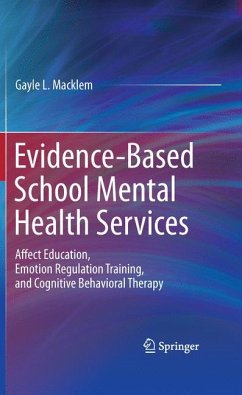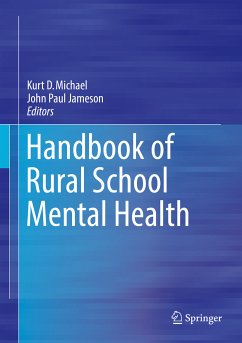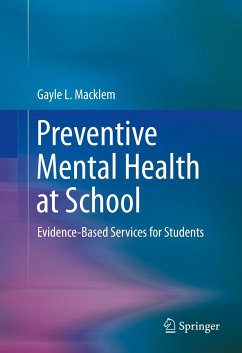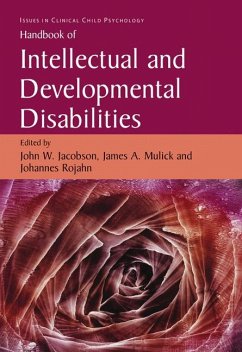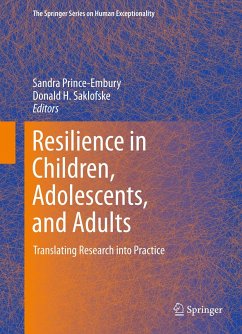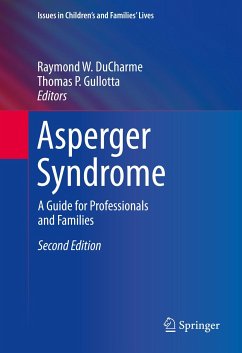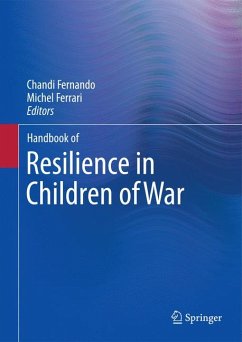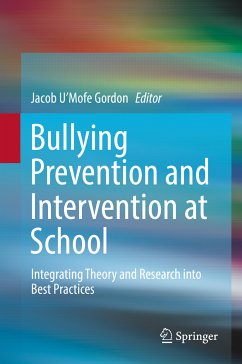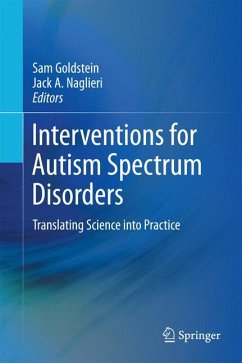
Handbook of Culturally Responsive School Mental Health (eBook, PDF)
Advancing Research, Training, Practice, and Policy
Redaktion: Clauss-Ehlers, Caroline S.; Weist, Mark D.; Serpell, Zewelanji N.
Versandkostenfrei!
Sofort per Download lieferbar
120,95 €
inkl. MwSt.
Weitere Ausgaben:

PAYBACK Punkte
60 °P sammeln!
Schools across the United States - as well as much of the world - are experiencing widespread change. Students are more diverse ethnically, academically, and emotionally. More attention is being paid to abuse and neglect, violence and bullying, and the growing inequities that contribute to student dropout. Within this changing landscape, cultural competence is imperative for school-based professionals, both ethically and as mandated by educational reform.The Handbook of Culturally Responsive School Mental Health explores the academic and behavioral challenges of an increasingly diverse school ...
Schools across the United States - as well as much of the world - are experiencing widespread change. Students are more diverse ethnically, academically, and emotionally. More attention is being paid to abuse and neglect, violence and bullying, and the growing inequities that contribute to student dropout. Within this changing landscape, cultural competence is imperative for school-based professionals, both ethically and as mandated by educational reform.
The Handbook of Culturally Responsive School Mental Health explores the academic and behavioral challenges of an increasingly diverse school environment, offering workable, cost-effective solutions in an accessible, well-organized format. This timely volume updates the research on cultural competence in school-based interventions, describes innovative approaches to counseling and classroom life, and demonstrates how this knowledge is used in successful programs with children, adolescents, and their families. Populations covered range widely, from African American and Asian American/Pacific Islander families to forced migrants and children who live on military bases.
By addressing issues of training and policy as well as research and practice, contributors present a variety of topics that are salient, engaging, and applicable to contemporary experience, including:
- Adolescent ethnic/racial identity development. - Culturally responsive school mental health in rural communities. - Working with LGBT youth in school settings. - Cultural competence in work with youth gangs. - Culturally integrated substance abuse prevention and sex education programs. - Promoting culturally competent school-based assessment. - School-based behavioral health care in overseas military bases. - Developmental, legal, and linguistic considerations in work with forced migrant children. - Cultural considerations in work/family balance.
TheHandbook of Culturally Responsive School Mental Health is a must-have reference for researchers, scientist-practitioners, educational policymakers, and graduate students in child and school psychology; educational psychology; pediatrics/school nursing; social work; counseling/therapy; teaching and teacher education; and educational administration.
The Handbook of Culturally Responsive School Mental Health explores the academic and behavioral challenges of an increasingly diverse school environment, offering workable, cost-effective solutions in an accessible, well-organized format. This timely volume updates the research on cultural competence in school-based interventions, describes innovative approaches to counseling and classroom life, and demonstrates how this knowledge is used in successful programs with children, adolescents, and their families. Populations covered range widely, from African American and Asian American/Pacific Islander families to forced migrants and children who live on military bases.
By addressing issues of training and policy as well as research and practice, contributors present a variety of topics that are salient, engaging, and applicable to contemporary experience, including:
- Adolescent ethnic/racial identity development. - Culturally responsive school mental health in rural communities. - Working with LGBT youth in school settings. - Cultural competence in work with youth gangs. - Culturally integrated substance abuse prevention and sex education programs. - Promoting culturally competent school-based assessment. - School-based behavioral health care in overseas military bases. - Developmental, legal, and linguistic considerations in work with forced migrant children. - Cultural considerations in work/family balance.
TheHandbook of Culturally Responsive School Mental Health is a must-have reference for researchers, scientist-practitioners, educational policymakers, and graduate students in child and school psychology; educational psychology; pediatrics/school nursing; social work; counseling/therapy; teaching and teacher education; and educational administration.
Dieser Download kann aus rechtlichen Gründen nur mit Rechnungsadresse in A, B, BG, CY, CZ, D, DK, EW, E, FIN, F, GR, HR, H, IRL, I, LT, L, LR, M, NL, PL, P, R, S, SLO, SK ausgeliefert werden.




